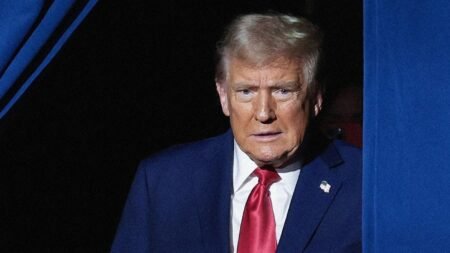U.S. District Judge Aileen Cannon has formally dismissed federal charges against former President Donald Trump for allegedly withholding White House documents. This ruling comes after Special Counsel Jack Smith was deemed unlawfully appointed, marking a significant blow to the criminal cases against the former president. Trump had been indicted on 40 federal felony charges for withholding national security information by bringing White House documents, including classified materials, back to Mar-a-Lago and obstructing the government’s investigation into retrieving these documents. Cannon, a Trump appointee, sided with Trump’s argument that Smith’s appointment violated the law as it should have been made by the president and confirmed by the Senate.
Cannon also ruled that Smith’s appointment violated the Constitution’s Appropriations Clause, as Congress had not appropriated funds to his investigations as required by federal law. While the case has been ordered to be closed, it will not affect other legal proceedings against Trump, such as the separate federal case for trying to overturn the 2020 election. Trump has called for all cases against him to be dismissed, stating on Truth Social that the dismissal of charges related to White House documents was just the “first step” in ending what he calls the “Weaponization of our Justice System.” The Justice Department has not yet commented on the ruling.
The Department of Justice has the option to appeal Cannon’s dismissal to the 11th Circuit Court of Appeals, and then potentially to the Supreme Court. Legal experts have suggested that this ruling could provide an opportunity for prosecutors to request a new judge in the case if the appeals court allows it to move forward. In addition, there is speculation that the U.S. Attorney in Florida could take over the case and reindict Trump to avoid the issues surrounding Smith’s appointment. However, any further legal action is likely to significantly delay the case, potentially even past the next election, where Trump could appoint officials to drop the charges against him.
Supreme Court Justice Clarence Thomas had previously made similar arguments about Smith’s appointment in his concurrence to a ruling granting Trump immunity from criminal prosecution. Thomas challenged Smith’s appointment, stating that there must be a law establishing the office that the Special Counsel occupies for the prosecution to proceed. It remains unclear how Cannon’s ruling will impact Trump’s federal election case, which is set to resume after the Supreme Court’s immunity ruling. U.S. District Judge Tanya Chutkan, who oversees that case, may have a different approach than Cannon, potentially affecting the outcome.
Trump was indicted in the documents case in June 2023 after federal investigators found over 11,000 White House documents, including classified ones, at Mar-a-Lago. The case alleges that Trump knowingly concealed documents from the government and obstructed the investigation. Cannon’s handling of the case, including her indefinite delay of the trial and controversial rulings, has faced scrutiny from legal experts. The case has seen multiple setbacks, including delays and appeals, and the potential for shifts in legal proceedings moving forward. It is unclear how Cannon’s ruling will impact Trump’s other criminal cases or the overall trajectory of the legal battles he faces post-presidency.












